Raising chickens has become a massively popular thing for small farm girl wannabes like me. Maybe once my chicks fly the coop, I could see myself being a happy hen mama, maybe. So, when I found out my young friend Hannah had adopted a flock of her own, I just had to stop by and investigate her backyard farming oasis. Through our conversation, I discovered something embarrassing. I learned that hens don’t need a rooster to lay eggs. Why had that not occurred to me before? I was more clueless than I knew so I had Hannah give me the 411, the birds and the bees on chickens. I needed to know more about this chicken raising thing, and Hannah was kind enough to oblige my curiosity.
MW+GF: First things first, where did you buy your chicks?
HANNAH: I bought my chicks at Family Center Farm and Home.
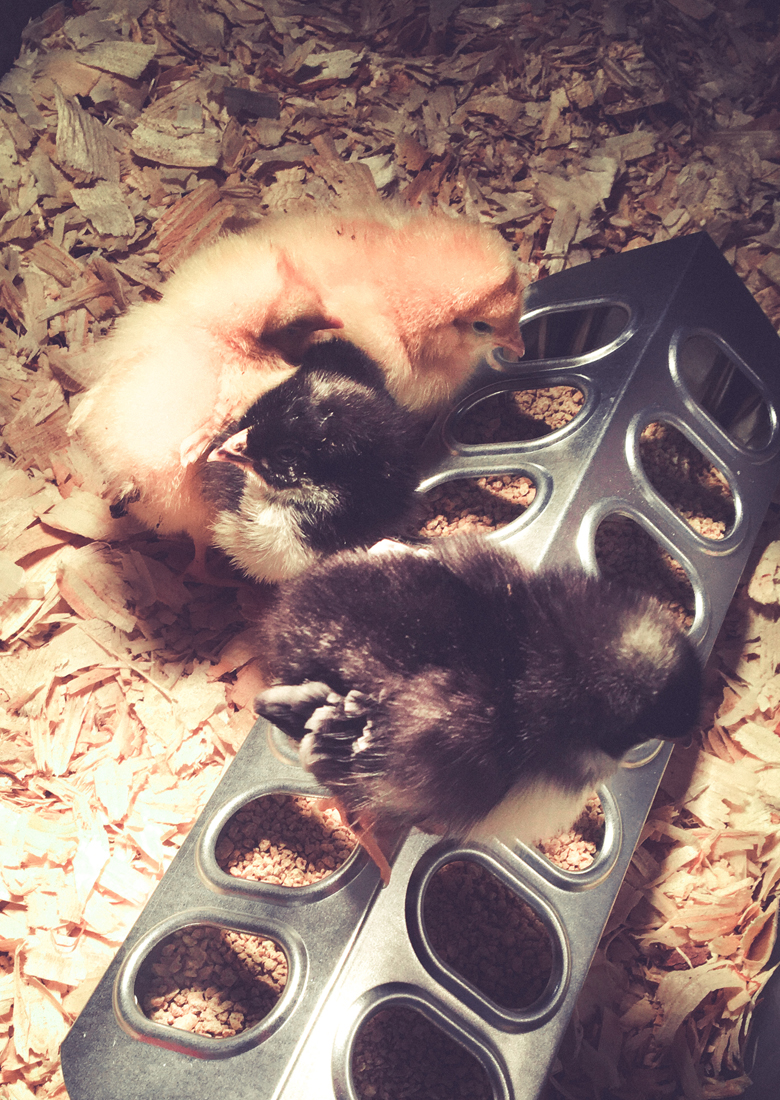
MW+GF: How old are chickens when they start laying eggs?
HANNAH: Chickens start laying eggs between 18-20 weeks typically. Mine took about 22 weeks to begin putting though. It had been sweltering temperatures, so I think that’s why it took them a little longer than average.
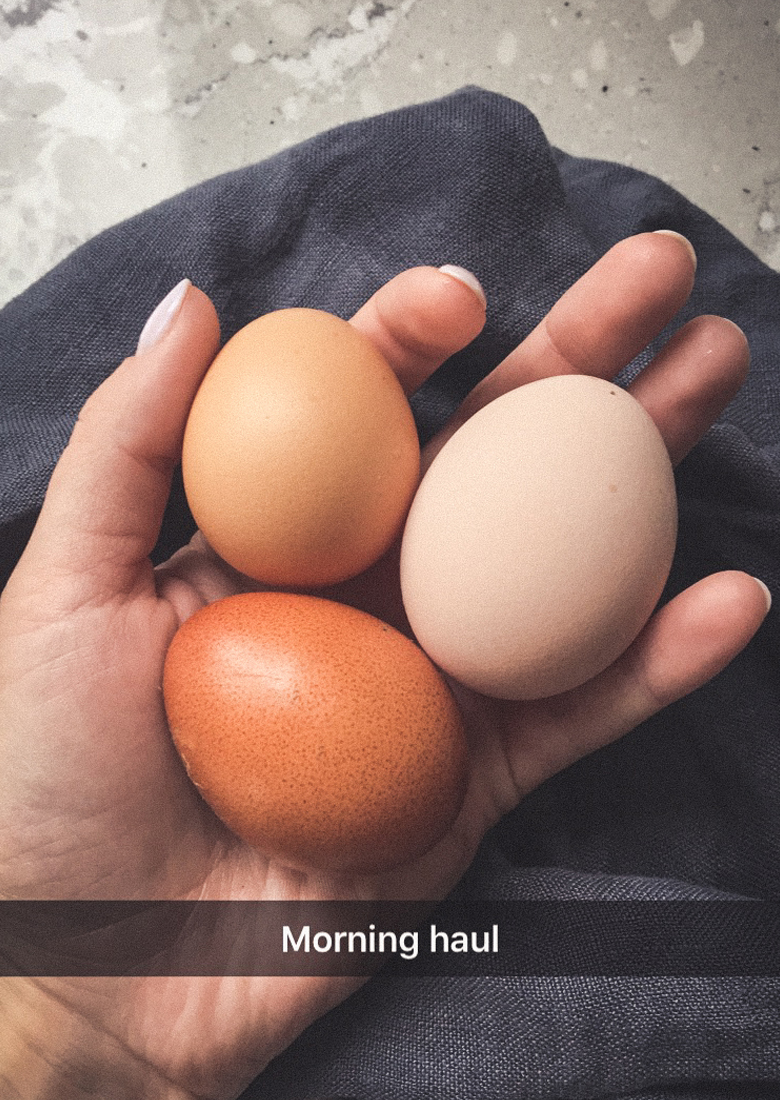
MW+GF: How often do chickens lay eggs naturally?
HANNAH: It takes 26 hours for a hen to produce an egg, so ideally you want an egg every 26 hours. This can take longer in extremely cold or hot temperatures, however.
MW+GF: How long will eggs keep?
HANNAH: If you wash your eggs off when you bring them inside, then they HAVE to go in the fridge, and they can last around three weeks in the refrigerator (about as long as they would if you bought them from the store). If you don’t wash them off, then you can store the eggs on your counter at room temperature, but they only last a few days like this.
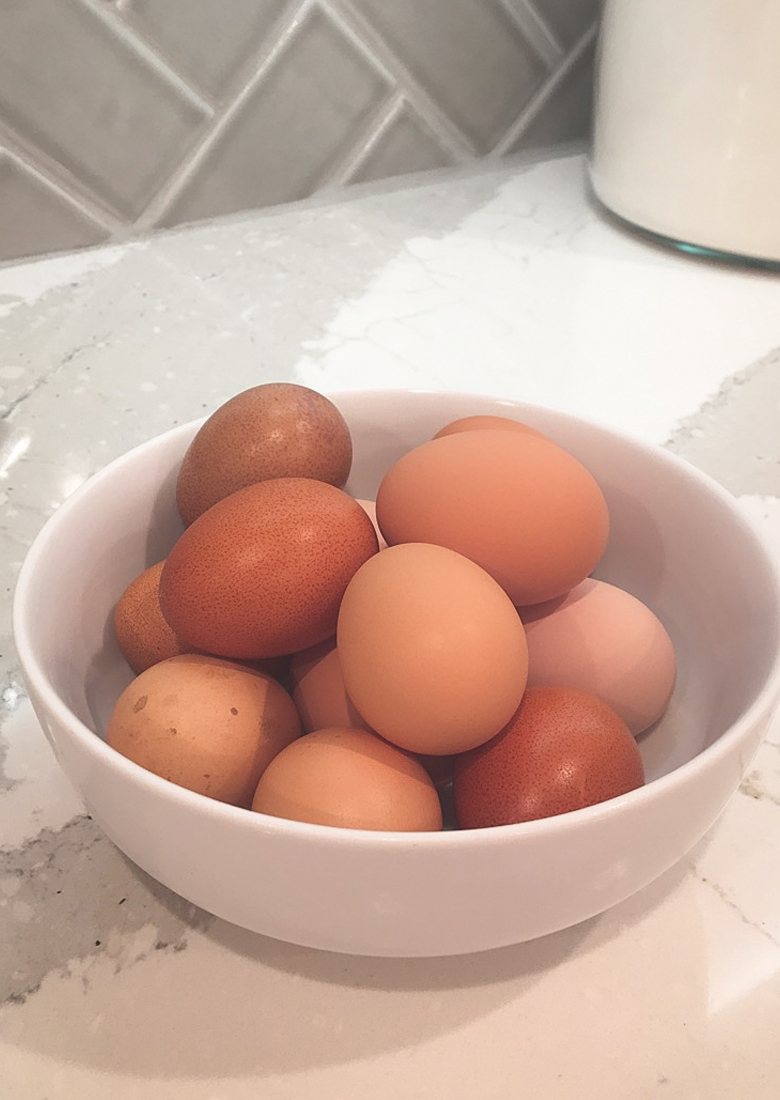
MW+GF: How many eggs will your chickens produce?
HANNAH: I should get an egg from each girl around every 26 hours. Mine have been laying for a little less than a week, and I haven’t got four eggs every day yet since they are still getting used to this whole egg laying thing. I’m hoping for 20 eggs a week once they regularize their laying schedule!
MW+GF: What do you feed your chickens? Anything vital to egg production?
HANNAH: For the first 15 weeks, I fed my girls the “start and grow” beginner food from Purina. At about 15 weeks I switched them over to a layer feed that helps them get more nutrients for laying eggs. Now, their laying feed makes up 90% of their diet. They explore the yard almost every day and snack on bugs and flowers. We have planted special things in the garden that we know chickens like and when we have extra fruit and veggies in the house; I try to give them special treats (they enjoy cold watermelon). But, their favorite treat is oatmeal. They LOVE eating oatmeal right out of my hand. There’s nothing vital to egg production as long as their diet consists 90% of their laying feed.

MW+GF: I know there are many varieties of chickens – what kind do you have?
HANNAH: I have 2 Cuckoo Maran Pullets (the black and white girls – Holly and Gloria), and 2 Buff Orpington Pullets (the golden girls -Henrietta and Penny).
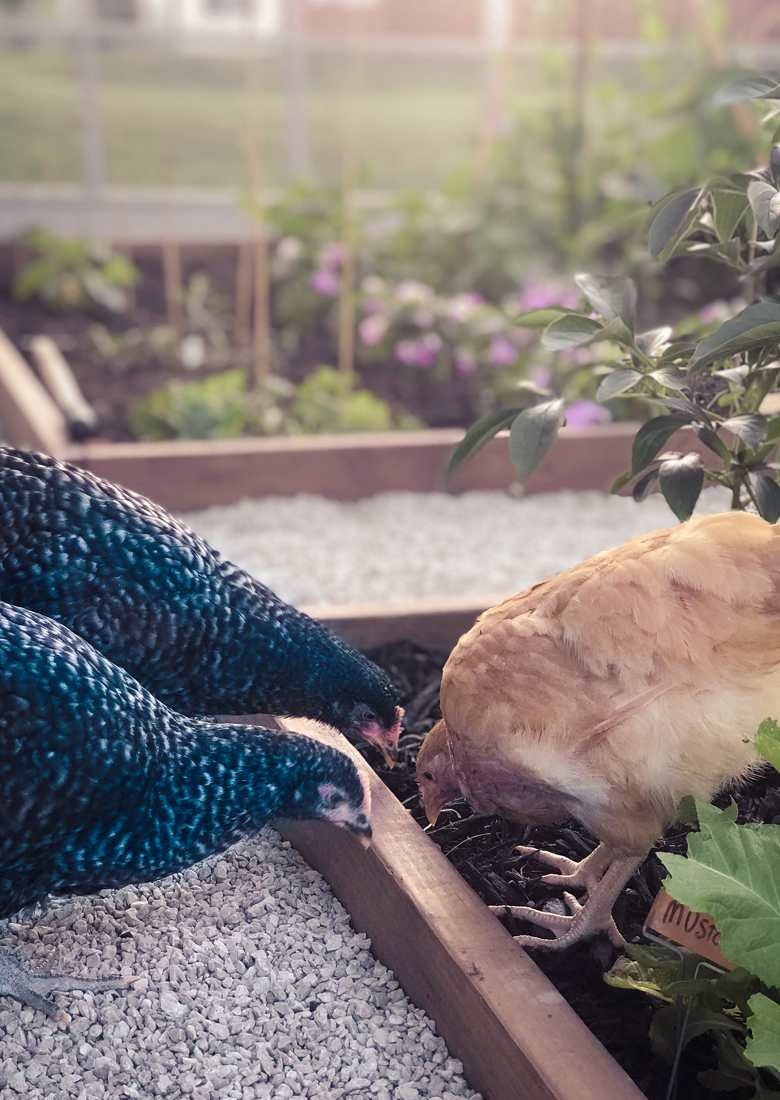
MW+GF: Do they have personalities?
HANNAH: Oh yes! Penny and Henrietta are not the friendliest girls. They will eat out of my hand, and let me get close but they don’t enjoy being held. Gloria is helpful and doesn’t mind being carried around or petted a lot. Holly is my lazy girl. When I put the girls up at night in their coop, she won’t move. Instead, she sits there and waits for me to carry her into the coop. She might be a tad spoiled – oops!
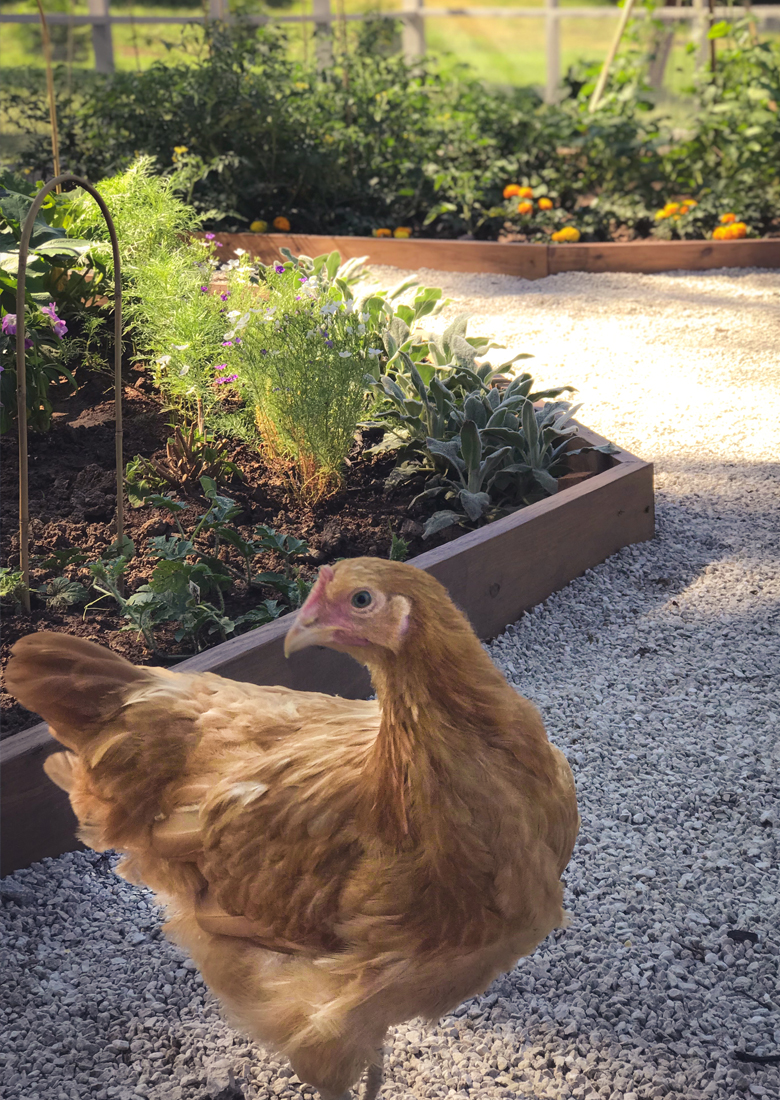
MW&GF: What is a good size coop for your hens?
HANNAH: I have four hens. My coop has three laying nests, and you can have three hens share a laying nest (so I have enough laying nests for nine hens technically). It’s recommended to have 3-4 square feet in the coop per hen, and my coop is about 15 square feet. I recently had my brother put a small addition on my coop to give them some extra space, and I think they love it! As I said, they are spoiled!
MW+GF: If chickens are allowed where you live, what amount of space do you need?
HANNAH: In the area, we live in, you can have hens in city limits, and you can keep 100 hens per 3 acres. I have four hens on about 2.5 acres, so I think I’m fine.
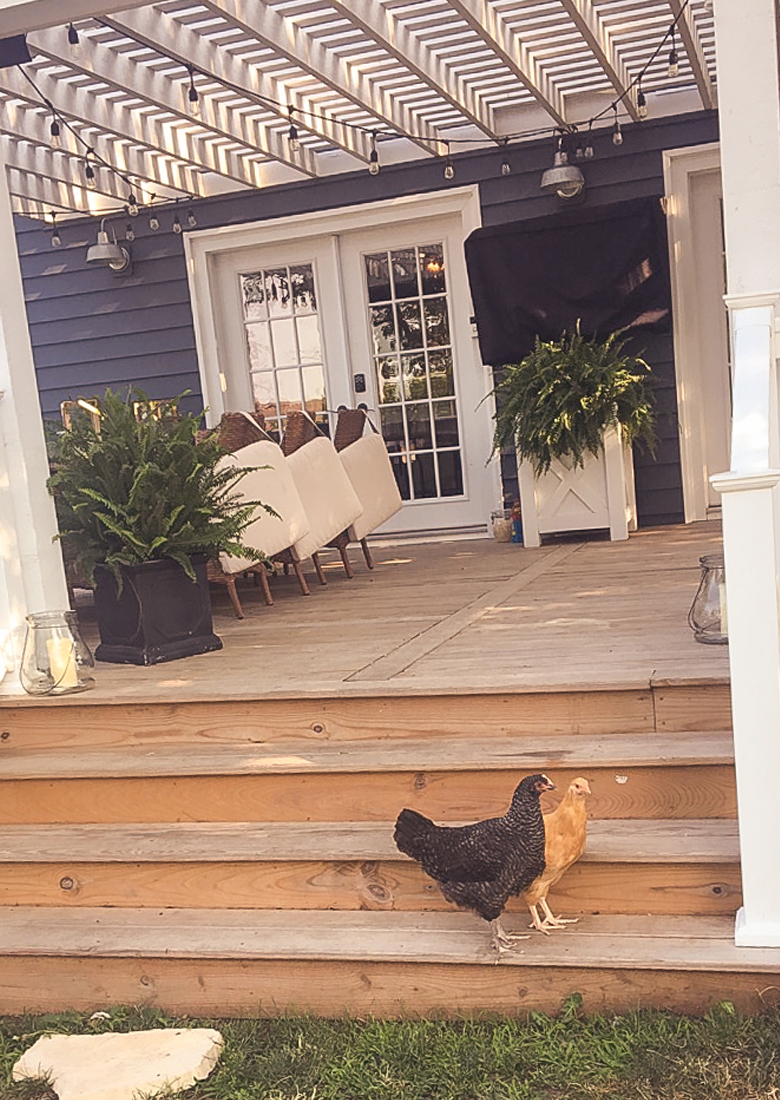
MW+GF: What is the time commitment required to take care of chickens and what are the duties involved?
HANNAH: You need a lot of time in the first 10-12 weeks to raise a healthy flock. The most significant responsibility is to keep a clean brooder – this is the small container that you raise your chicks in while they are living indoors. Every morning I would have to clean out all the poop and wet wood shavings from the brooder and replace it with fresh. I would also have to make sure the girls always had clean food and water. Another duty was to closely monitor the temperature of the brooder box because it has to be kept extremely warm the first few weeks. Now that my girls are older and laying eggs it’s a little less time-consuming. I clean their coop out every 2-3 weeks and give them fresh food and water daily. The best duty is collecting eggs every day though. It’s so rewarding, and makes me so happy and proud of my girls!
MW+GF: Is it hard to take a vacation? I mean, it’s not like you can call the local doggie daycare and get them taken care of.
HANNAH: Going on vacation hasn’t been a big deal for me. Since I’ve built my addition on the coop, my girls are beautiful to stay in their coop for a few days instead of exploring the yard all day like they usually do. As long as I have a friend or family member give them fresh food and water and collect their eggs, then they are good to go!
MW+GF: No rooster? Not necessary for eggs?
HANNAH: You don’t need a rooster for laying eggs. However, if you want your chicks, then you will need a rooster to make baby chicks. But, hens alone will lay great eggs for your kitchen!
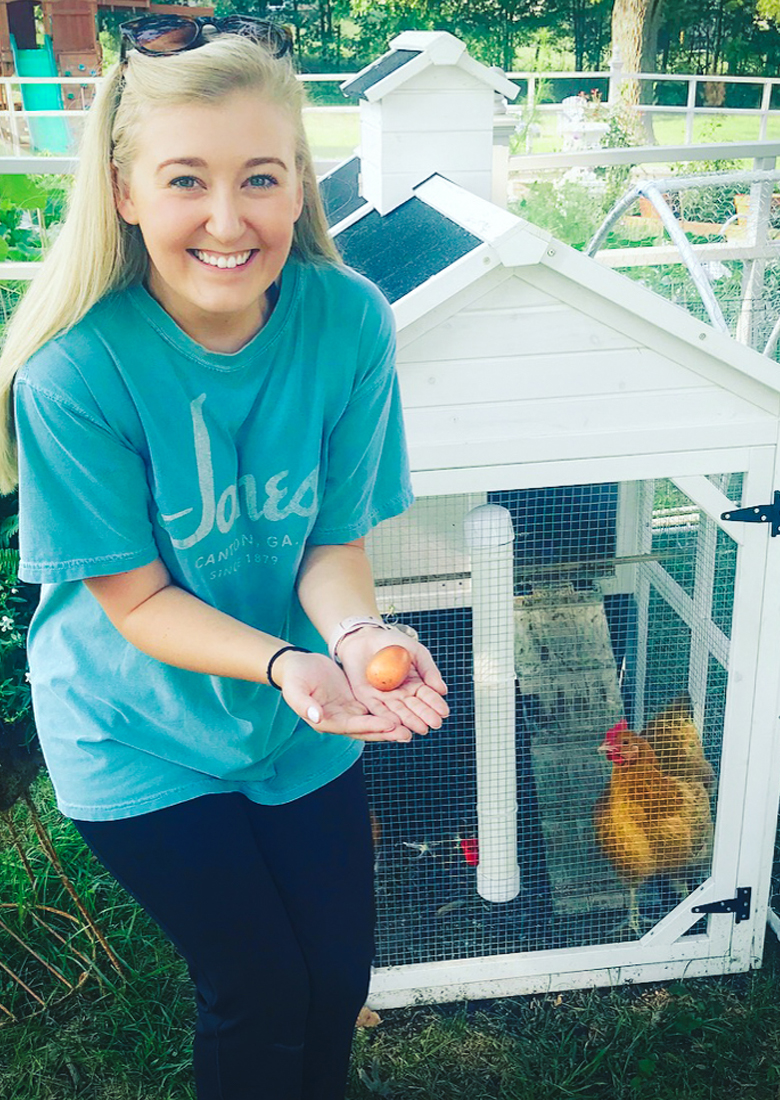
MW+GF: What is your advice for different weather conditions?
HANNAH: Chickens don’t like wet and cold weather, so on rainy days, they stay in their coop. When they first moved to their coop in the spring there were a few chilly nights, so I used an extension cord to get a heat lamp and heating pad out into their coop to keep them warm at night (I know, spoiled). On scorching days I try to give them some yummy treats like corn frozen in water for them to peck at and enjoy. I haven’t had to deal with snow yet; we will see how that goes this winter!
MW+GF: What is the life expectancy of a chicken?
HANNAH: They should live for up to 7 years but will stop producing after about five years.
MW+GF: What’s the overall expense involved in becoming a chicken farmer?
HANNAH: There was a lot of costs in the beginning. Especially in the first 15 weeks because they are growing so much and you have to change the sizes of their food and water containers and continuously clean out their brooder. The most significant expense was my coop. My actual chickens only cost $15 for all 4! Within the first 15 weeks, I probably spent close to $700 in chicken supplies – including their coop. Now, I only buy food monthly which is $10, and fresh wood shavings and mulch for their coop every 2-3 weeks which costs about $10 as well. My second round of chicks will be a lot cheaper because I won’t have as many start-up costs.
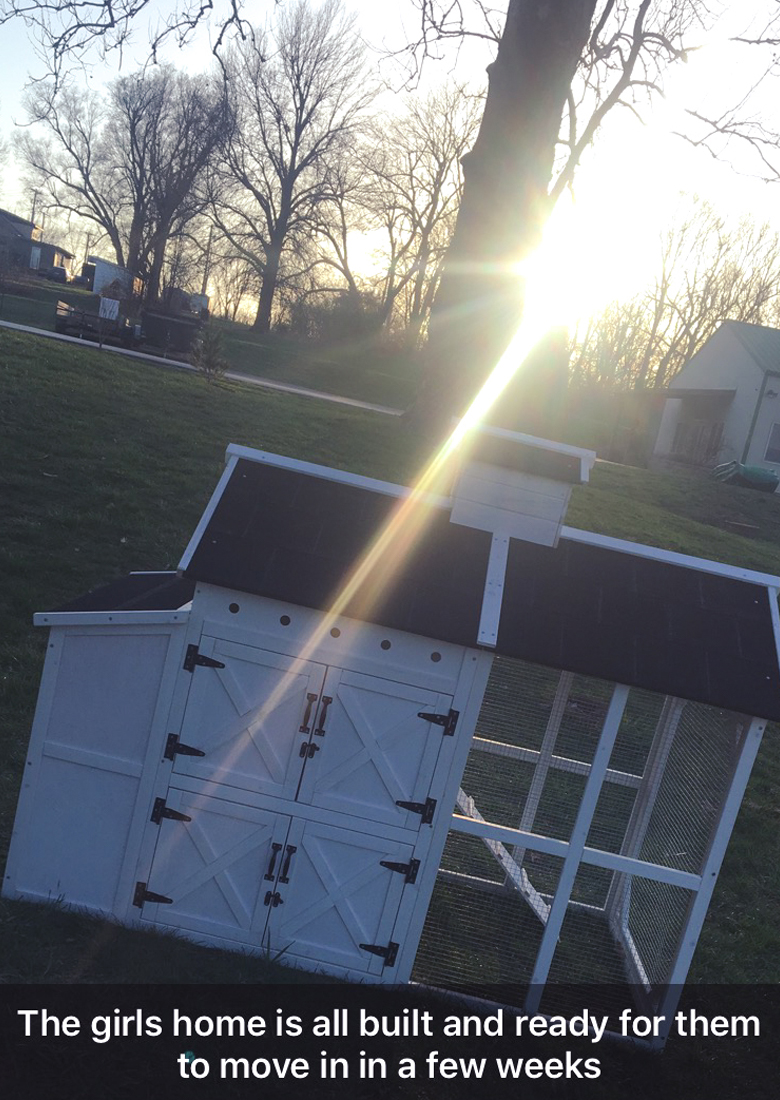
MW+GF: Do you need to bathe your chickens?
HANNAH: Kinda. Chickens don’t really like being wet at all. They take dust baths. A dust bath is a combination of sand, sawdust, and soil. They only get in the dust and cover themselves in the mixture. I tried making a bathing box for their coop, but they didn’t use it. Instead, they have created “dust bath holes” around our yard and take their daily bath in their hole.
MW+GF: Do you have a favorite yet?
HANNAH: I enjoy all my hens, but my favorites would have to be the Cuckoo Maran Pullets because they are a little friendlier and like to be carried and given a little love.
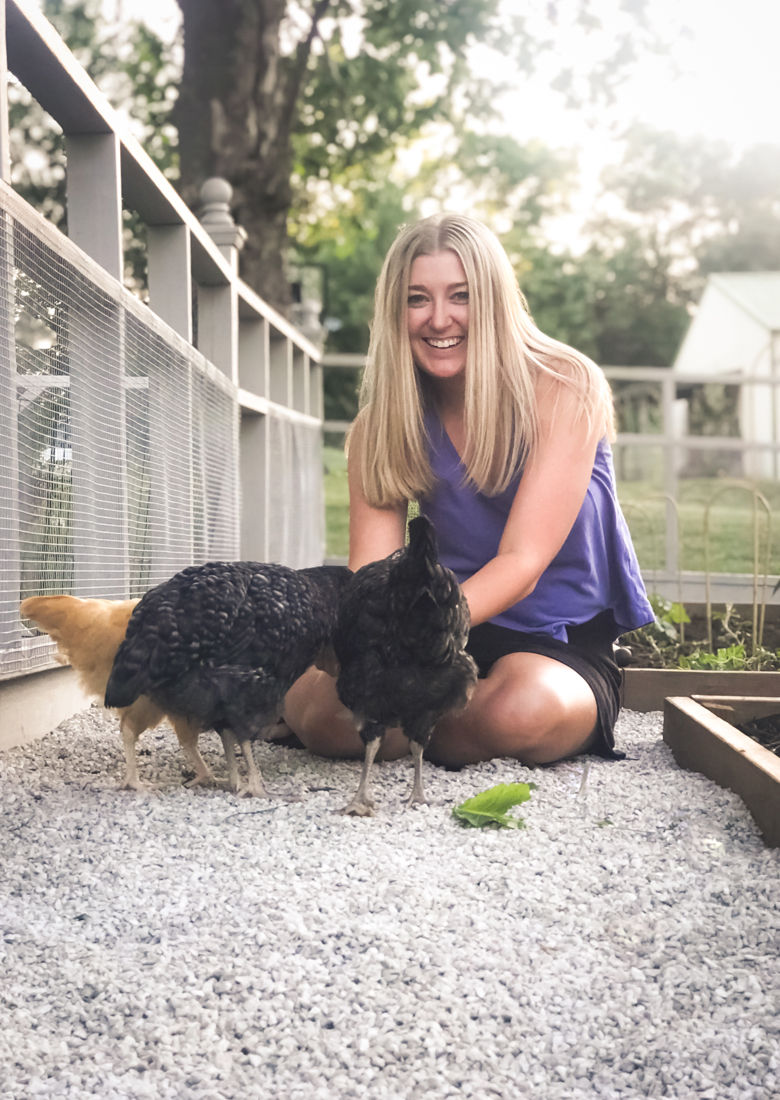
MW+GF: What have you learned so far? What are the DO’s and DONT’s?
HANNAH: Two words: pasty butt. I learned a lot about the pasty butt. Their first week home I noticed they all had the pasty butt (this was one thing I had a gut feeling about, and I trusted my instincts after the employee at the farm store said they would be fine if I fed them oatmeal). Pasty butt is when old poop drys and hardens on their back end and creates a barrier so they can’t let their poop out. This can cause your chicks to get backed up and die. I ignored the advice I had been given and did my research. It ended up being a bigger deal then I was led to believe. I had to get cotton balls and get them wet with hot water and gently wipe (not scrub because I didn’t want to rip their skin) away at the dry poop until it was gone. Then I had to take another cotton ball and wipe vaseline on their behinds to keep them moist and clean. I never thought I would clean a chicken behind in my life. But, my girls are all healthy, and I’m so happy I trusted my gut! I have learned a lot!
For the first 18 weeks, there were a lot of changes that happened. I always was reading about what to expect from the girls that week and how to adjust their temperature, water, food, etc. The biggest DO I learned was to trust my gut. If I thought something felt off, then it most likely was off. The biggest DON’T I learned was not to take everyone’s advice. Every time I went into the farm store, the employees would all give me different information. I would also have random people who had never actually been around a chicken try to tell me what I needed to be doing. If you do your research and trust your gut, then you will be just fine.
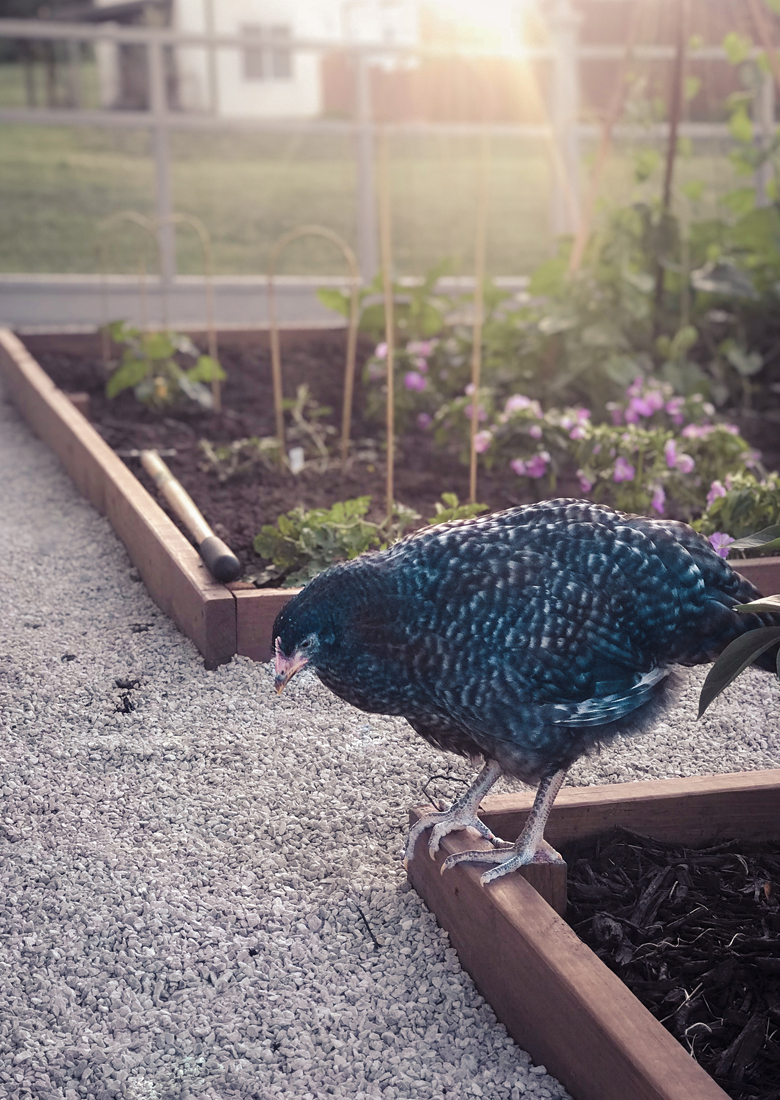
Thank you so much, Hannah, for sharing your knowledge and your girls with me. I feel like I could take a go at this backyard chicken farming thing now – maybe.
Farm fresh eggs make the best street corn style bacon quiche by the way!
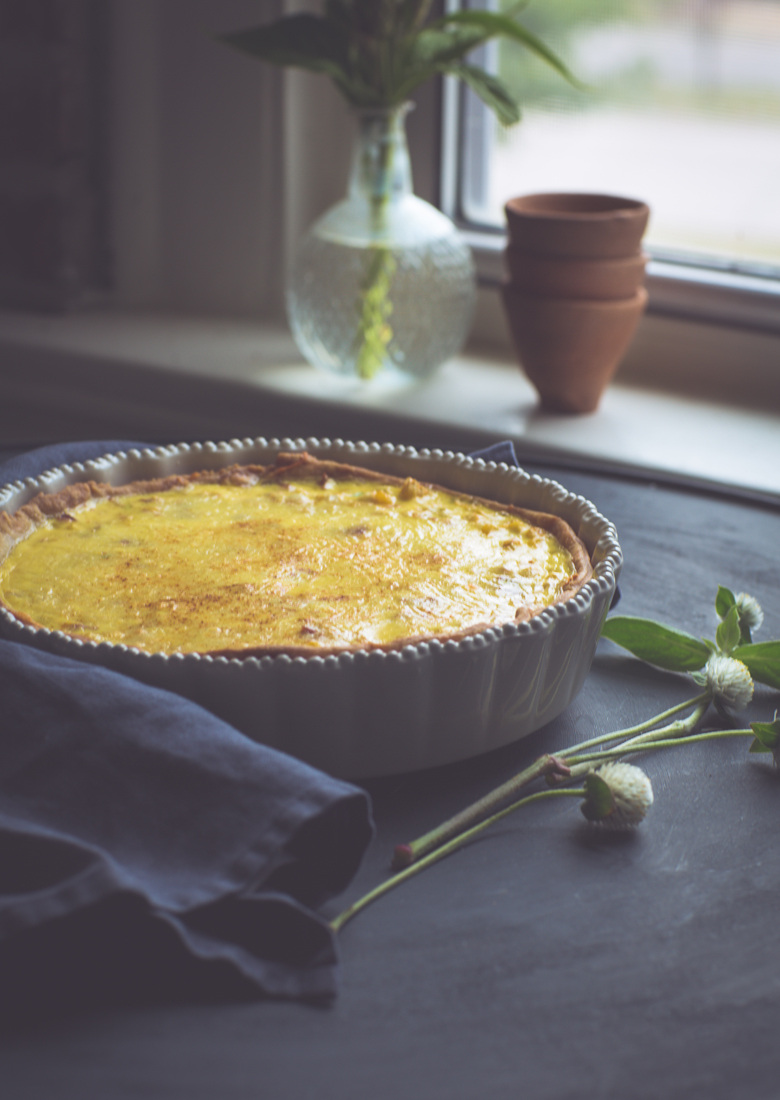
1
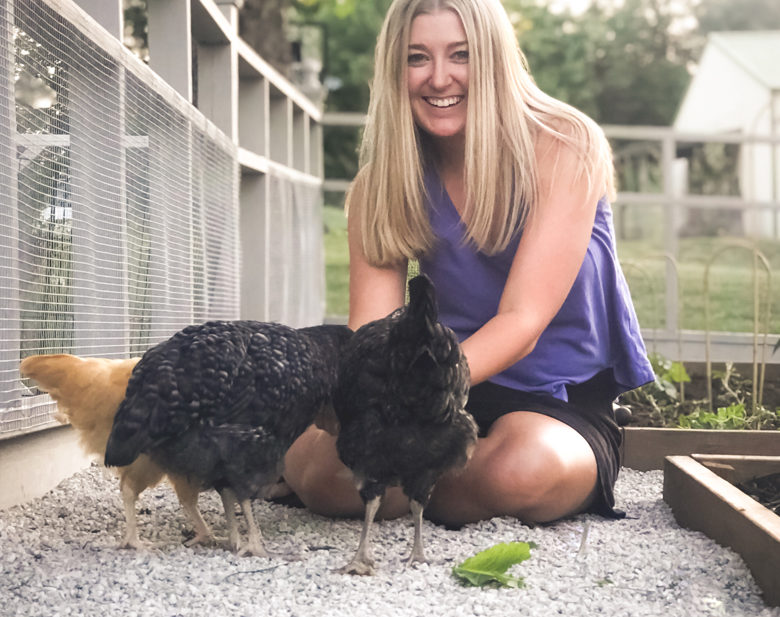
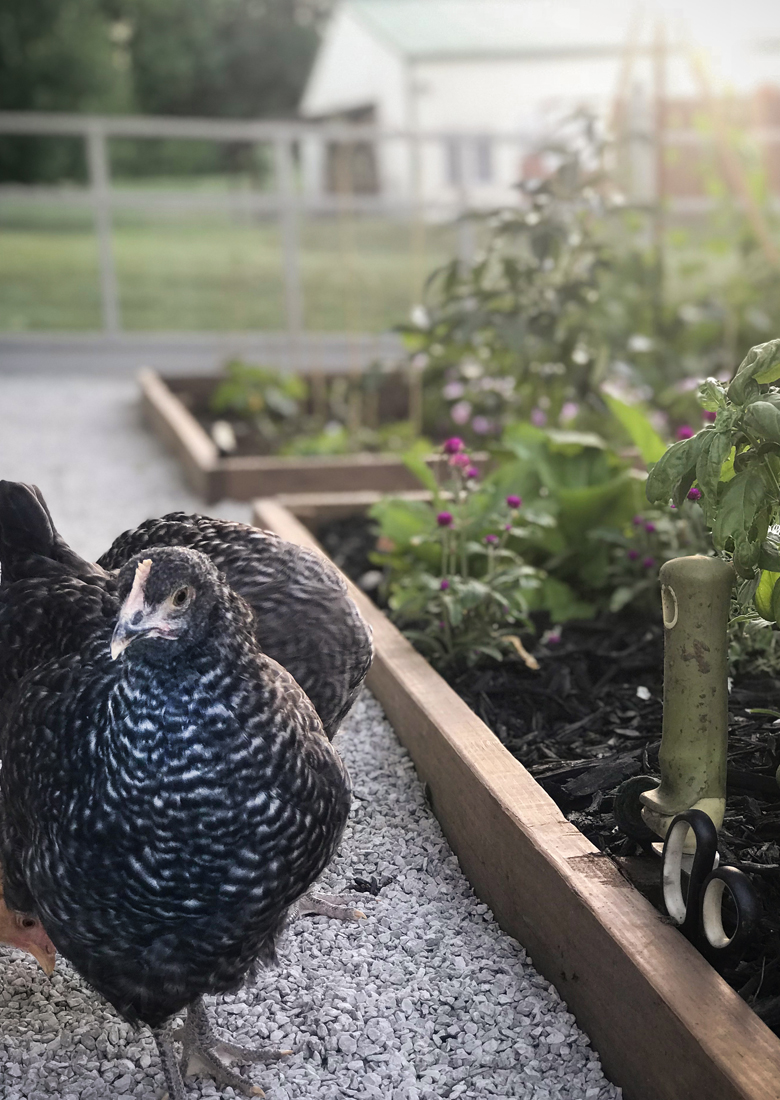
Leave a Reply